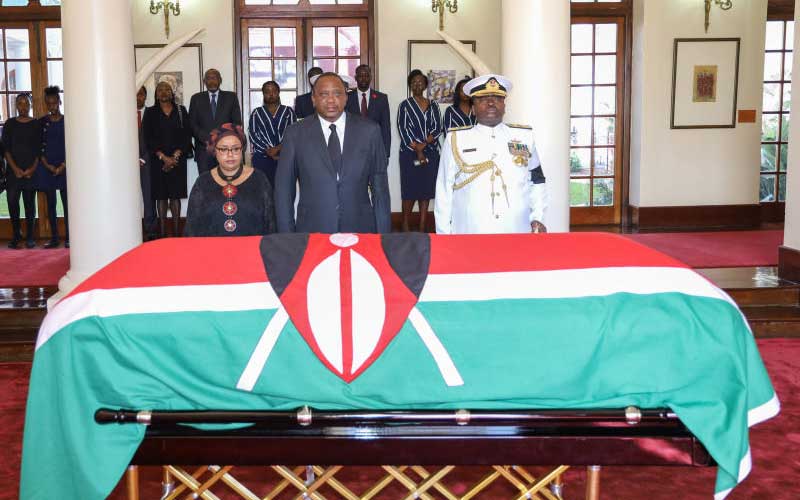×
The Standard e-Paper
Stay Informed, Even Offline

President Uhuru Kenyatta, First Lady Margaret Kenyatta and Kenya Defence Forces boss Samson Mwathethe pay their respects to former President Daniel Moi at State House. [File]
The difficulties occasioned by the coronavirus were made worse by the passing of many reputable individuals. From presidents to rock stars to humanitarians, 2020 was the year they exited the stage.